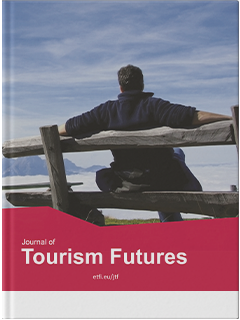Acceptance and use of ICT in tourism: the modified UTAUT model
IF 5.8
Q1 HOSPITALITY, LEISURE, SPORT & TOURISM
引用次数: 3
Abstract
PurposeThis study aims to investigate the technology usage behaviour of the tourists in line with the modified unified theory of acceptance and use of technology (UTAUT) model.Design/methodology/approachData were collected from a survey of 265 tourists using the random sampling technique. Partial least squares-based structural equation modelling (PLS-SEM) technique was used to analyze the data.FindingsThe findings revealed that performance expectancy, hedonic motivation and habit significantly influence the behavioural intention of tourists to use information and communication technology (ICT), while effort expectancy, social influence, and facilitating conditions do not have a significant influence. However, actual ICT usage behaviour largely depends on the behavioural intention of the tourists, and their habits, while the facilitating conditions do not have any influence in this case.Practical implicationsThe findings uncover the core factors influencing tourists' actual ICT use behaviour that can assist the concerned stakeholders in designing tourism planning and sales. The study results also offer pathways for the world's tourism industry for a healthy recovery from the COVID-19 pandemic.Originality/valueThe findings have made robust contributions by extending the existing UTAUT-based literature by adding two new moderators in the relationship between behavioural intention and actual ICT usage behaviour.旅游业中ICT的接受和使用:改进的UTAUT模型
目的运用改进的技术接受与使用统一理论(UTAUT)模型,对游客的技术使用行为进行研究。设计/方法/方法采用随机抽样技术对265名游客进行调查。采用基于偏最小二乘的结构方程建模(PLS-SEM)技术对数据进行分析。结果表明,绩效期望、享乐动机和习惯对游客使用信息通信技术的行为意愿有显著影响,而努力期望、社会影响和便利条件对游客使用信息通信技术的行为意愿没有显著影响。然而,实际的ICT使用行为在很大程度上取决于游客的行为意图和习惯,而便利条件在这种情况下没有任何影响。研究结果揭示了影响游客实际信息通信技术使用行为的核心因素,可为相关利益相关者设计旅游规划和销售提供帮助。研究结果还为世界旅游业从COVID-19大流行中健康复苏提供了途径。原创性/价值这些发现通过在行为意图和实际ICT使用行为之间的关系中增加两个新的调节因子,扩展了现有的基于utaut的文献,做出了强有力的贡献。
本文章由计算机程序翻译,如有差异,请以英文原文为准。
求助全文
约1分钟内获得全文
求助全文
来源期刊

Journal of Tourism Futures
HOSPITALITY, LEISURE, SPORT & TOURISM-
CiteScore
15.70
自引率
6.00%
发文量
64
审稿时长
34 weeks
期刊介绍:
 求助内容:
求助内容: 应助结果提醒方式:
应助结果提醒方式:


